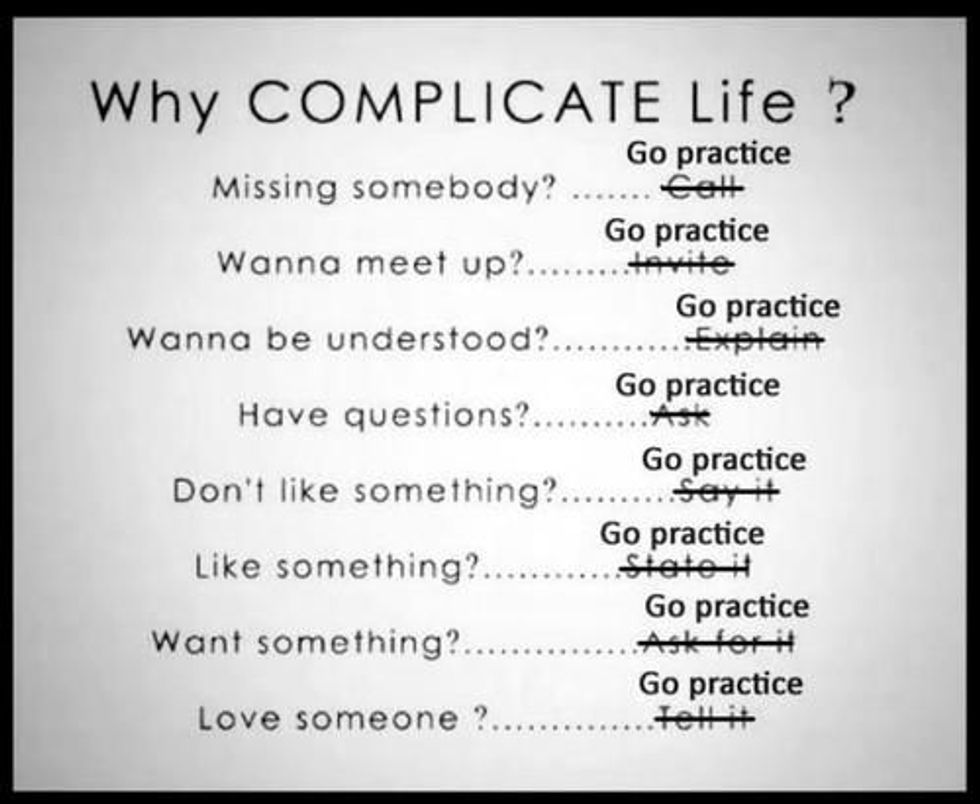- “What are you going to do with that?”– You half expect this question to arise every time you tell someone that you’re a music major. From here you have several options– a.) you can laugh it off, b.) you can try to defend you degree and life decisions, c.) or you can simply walk away and hope that they are watching TV when you accept your first Grammy.

- “I can’t, I have to practice!”– You've turned down plenty of social engagements due to practice. The word is a part of every music major’s daily conversation. It consumes your free time and can make you question why you decided to be a music major. Bottom Line: If you’re not practicing, you should go practice!
- “Why are you taking so many classes?”– Most non-music majors don't understand that our degree programs are really, really time consuming. Just because it says you're only taking 15 hours doesn’t mean that’s how much time you spend in class a week. For example, an ensemble generally meets 2-3 a week and requires outside practice time. So…why is it only worth one credit? Regardless, music majors understand the importance of time management. You’d die without your planner/calendar, and God bless you Music Education majors!

- “My jury is tomorrow.”– No matter your instrument, the word jury can strike fear into your very core. You spend an entire semester preparing for this one 10 minute window, and you hope with all your might that you don’t forget the words, go flat/sharp on the high note, or forget a page in your accompanist’s music. Depending on your program, there is one jury that is the mother of all juries––The Barrier (also known as the qualifying jury, junior standing jury, etc.). Essentially this jury takes place between your sophomore and junior year, and you must pass it in order to move on to the next level of study. Scary Stuff—but don’t worry, if you don't partake in the rite of passage quite yet, you’ll be fine. Practice and preparation are key.

- “What’s your favorite type of music?”–When someone asks you this question you try to explain that it depends. If they continue to question you, you can show them your iTunes, Pandora, Spotify, etc, which is probably comprised of dozens of genres. Picking a favorite type of music is hard for music majors because we learn to appreciate different forms, which in turn widens our interests.
- “I quit, I’m now a(n) [insert new major here] major!”– This declamation is generally made when speaking amongst fellow music majors who understand your frustrations. You never really mean it, and when a fellow music major does want to switch his or her career plans, they have a network of people who help him or her think through the decision. This phrase if often brought on by a difficult class such as Aural Skills. Ah… the beloved art of learning to sight read, determine intervals by ear, and dictate melodies and harmonies. This class (or music theory) is often the bane of every music major's existence–Even the vocalists hate it. You whine and complain about it for 4 semesters, but when you’re done, you realize the skills you acquired are useful. Go figure!
- "What are you doing over break?"– SLEEP (and practice)!

This article has not been reviewed by Odyssey HQ and solely reflects the ideas and opinions of the creator.

























